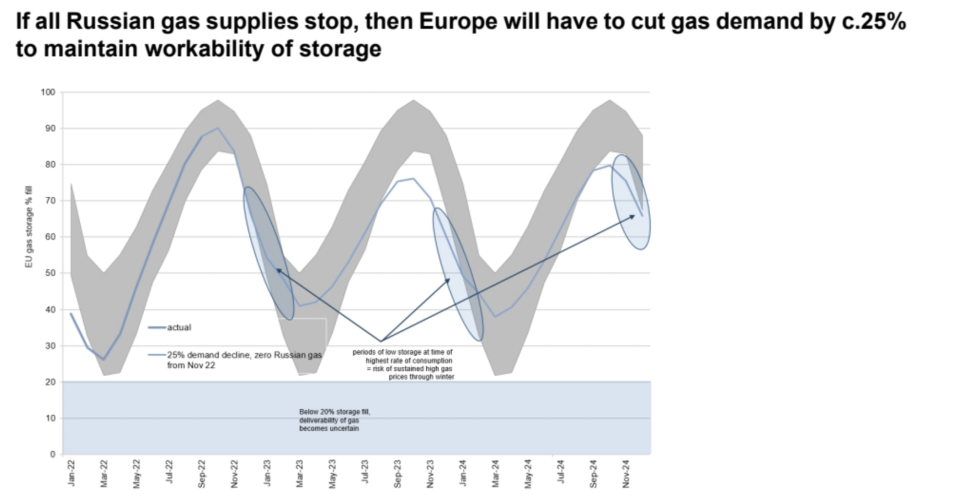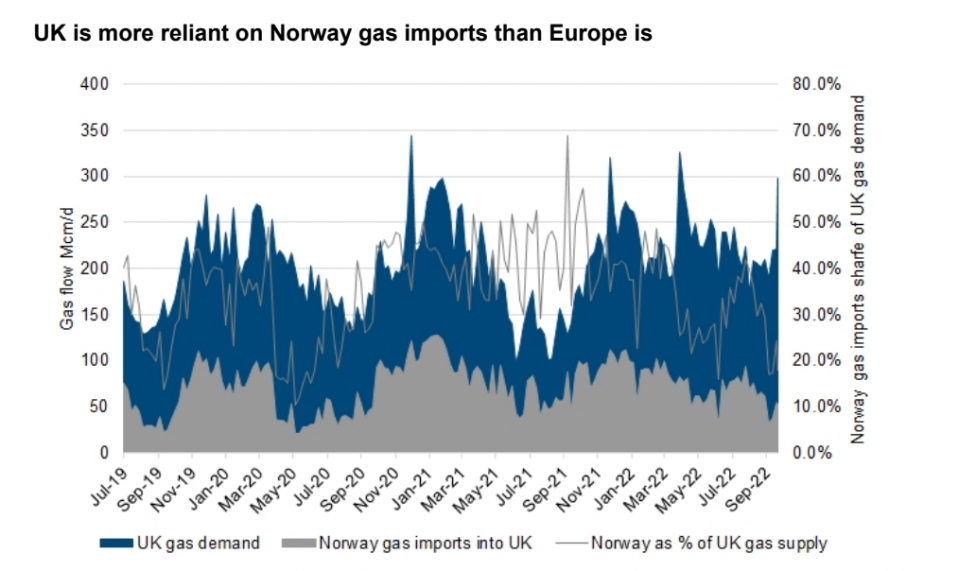Exclusive: UK still at risk of blackouts, warns energy forecaster

The UK could still face blackouts this winter, despite easing gas prices and Europe’s topping up of energy storage, warned Chris Wheaton, managing director of investment group Stifel.
He told City A.M. the country remains highly vulnerable to disruption across the continent, and that “blackouts are a real possibility.”
The energy expert argued key headwinds remained, such as whether Russia would turn off the taps into Europe.
He believed this was only a matter of time, predicting a shut-off between now and mid-November.
In his view, this would make the National Grid’s early forecasts that extra supplies would be available to purchase to stave off supply shocks via interconnectors less plausible – with European countries less prepared to sell energy.
Reflecting this reality, EDF Energy has warned this summer it could struggle to provide excess resources to Germany.
He described the National Grid’s outlook as “a brave assumption to make” and that the UK needed the weather to “be benign this winter.”
Wheaton said: “Blackouts are certainly a possibility; it is going to depend on weather and maintaining gas supplies.”
The Government’s extreme worst-case scenarios this winter have included four days of blackouts in January.

Stifel has calculated that Europe would have to cut usage around 25 per cent to make up for the loss of Russian gas flows.
Wheaton felt that the early warning signs of a shut-off were already here, with Ukraine’s state energy provider Naftogaz and Kremlin-backed gas giant Gazprom beginning legal proceedings against each other.
Naftogaz has taken Gazprom to arbitration, after the Russian company threatened sanctions amid disputes over gas flows transferred via the Sokhranovka point in Ukraine.
This could put even more pressure on Europe, which is already grappling with explosions and leaks across the Nord Stream pipelines.
Nord Stream explosions expose UK vulnerability
Wheaton believed the explosions – widely suspected to be sabotage – exposed how volatile and unpredictable the winter could be for the West.
He said: “If Norwegian pipelines were damaged or mysteriously stopped working, then there’ll be a real problem filling gas supply in the UK.”
The UK remains highly dependent on overseas supplies to meet its energy needs.
Norway is the country’s biggest overseas trading partner for fossil fuels, including a third of its gas supplies, while less than half are generated domestically.

This meant they could also be vulnerable to sabotage, with Ukraine blaming Russia for the explosions across the Baltic Sea pipelines (which the Kremlin denies) and reports of drones spotted near Norwegian oil rigs and structures.
He argued there was insufficient spare liquefied natural gas (LNG) capacity on the market to cover such losses, with European and Asian countries scrambling for spare supplies from the US and Middle East.
The energy expert also highlighted that there were only three LNG terminals supplying gas from the US to its allies, all situated near the Gulf of Mexico.
While Hurricane Ian has not hit any of the sites, the emergence of a category four storm reflected how new factors could potentially jeopardise energy supplies.